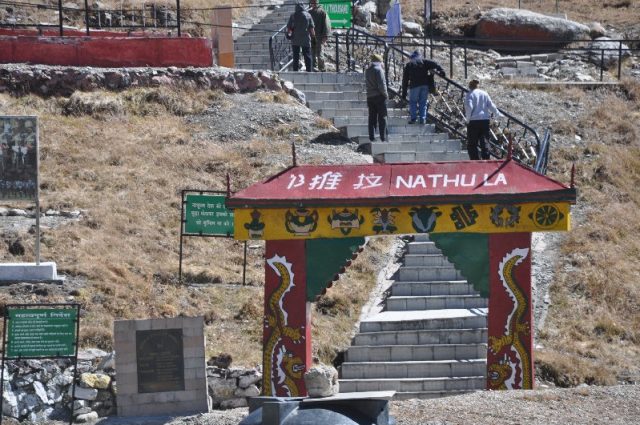
Government said China has agreed to allow Indian pilgrims to embark on the Kailash-Mansarovar yatra through Nathu La in Sikkim after the route was closed last year in the wake of the Doklam standoff.
Minister of state for external affairs Gen VK Singh informed the Lok Sabha in a written reply yesterday that the Yatra through this route was not undertaken last year after the Chinese government cited unfavourable conditions to ensure safety of pilgrims and smooth conduct of the yatra.
External Affairs Minister Sushma Swaraj also discussed it with Chinese Foreign Minister Wang Yi in December last year. “Subsequently, the Chinese government has confirmed resumption of the yatra on this route,” Singh said.
China last year did not allow Indian pilgrims to travel to Kailash Mansarovar through Nathu La after the face-off between the Indian and Chinese militaries in Doklam Plateau in Bhutan.
Later, India had taken up the issue of not allowing entry to around 50 Indian pilgrims to Kailash-Mansarovar Yatra (KMY) through the Nathu La pass through the Nathu La pass in Sikkim with Beijing. Later Chinese Foreign Ministry refuses to give more information about the reasons for stopping Indian pilgrim whether it was due to any weather-related issues like landslides and rains.
Over 7 lakh pilgrims visited the shrine last year. The cave shrine is situated at a height of 3,888 metres above sea level and has two routes leading to it, one from Pahalgam, about 100 km from Srinagar, and another from Baltal, 110 km from Srinagar.
The pilgrimage routes pass through high mountains and glaciers, involving a steep climb, and most of the track, despite clearance of snow, is slippery and full of slush, making it difficult for the pilgrims to negotiate the tortuous terrain.
A naturally made stalagmite of snow considered to be an ice “lingam” or icon of Lord Shiva is the main attraction of the cave shrine. It is believed that Lord Shiva had narrated the tale of immortality to his consort, the Goddess Parvati at the cave. Thus, it is known as “Amarnath”, which when translated means “Lord of immortality”.
Courtesy: NewsBharati














